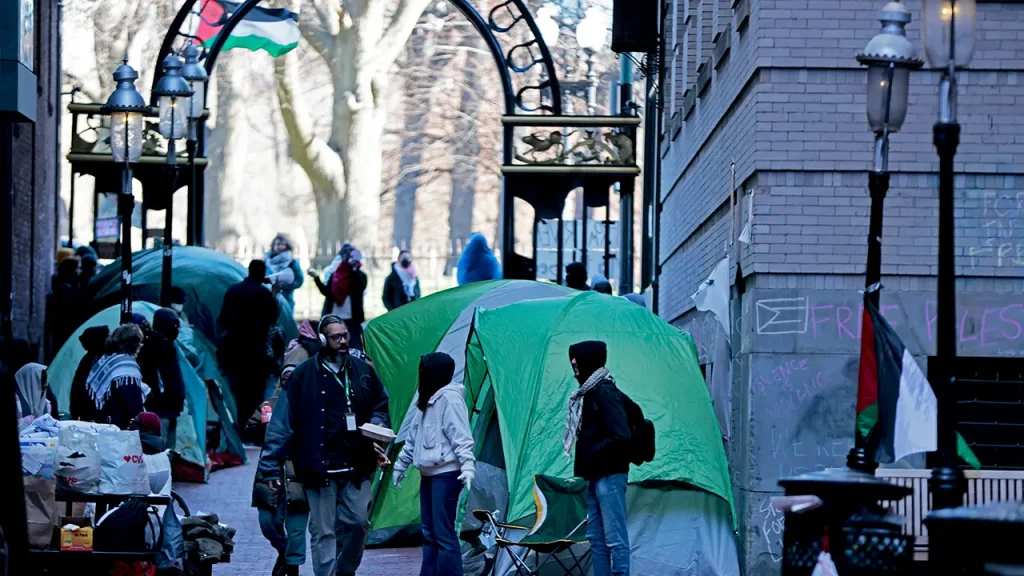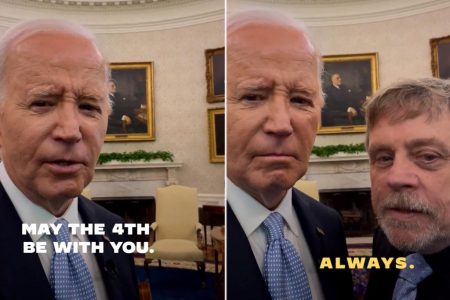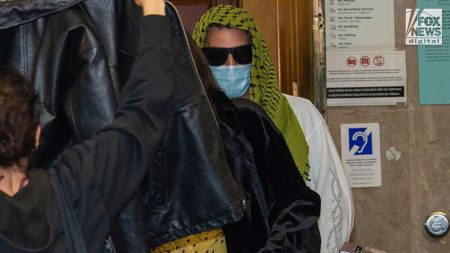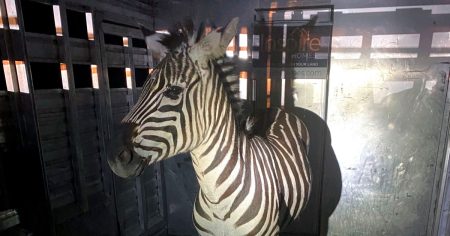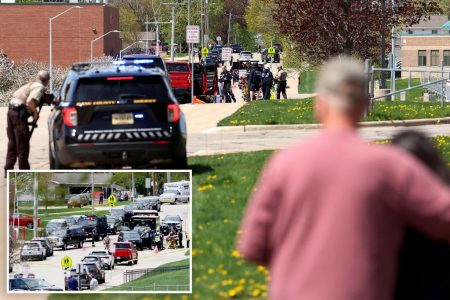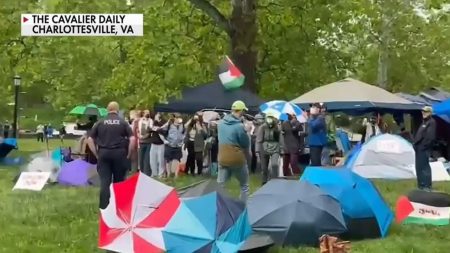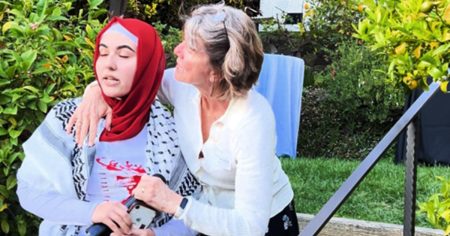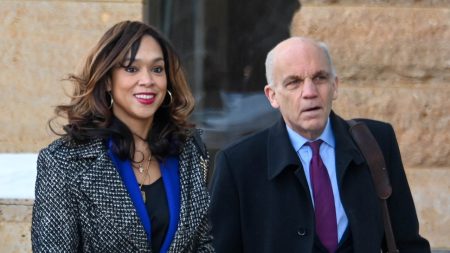On Thursday morning, 108 demonstrators were arrested by Boston police at Emerson College. Four officers were injured during clashes with anti-Israel agitators, with three officers sustaining minor injuries and one officer being more seriously injured. None of the protesters in custody reported injuries. The demonstrators will be arraigned in Boston Municipal Court later that day. Boston City Councilor Ed Flynn had previously contacted Emerson College about complaints of protesters blocking public access, emphasizing the importance of addressing violations of city ordinances regarding public property use.
Anti-Israel agitators have been causing disruptions nationwide, with escalations seen at USC, Harvard, and Columbia universities. At Emerson College, an announcement was made at 1 a.m. that those remaining at the anti-Israel encampment off Boylston Place Alley would be arrested. Boston police officers arrived at 2 a.m. and had to physically remove resisting protesters from the area. Other anti-Israel protests have also occurred at Massachusetts Institute of Technology, Tufts University, and Harvard Yard. At Harvard, activists set up tents for a “Gaza solidarity encampment” and vowed to stay until the university meets their demands, including divesting from companies with ties to Israel.
The situation at Harvard Yard was captured in social media videos showing anti-Israel protesters rapidly setting up tents in a frenetic manner. Dozens of activists slept overnight in more than 30 tents in Harvard Yard, demanding that the university divest from companies with Israeli ties and boycott the Jewish state. Harvard President Alan Garber did not rule out the possibility of police intervention to address the encampment. The students at Harvard expressed their solidarity with Gaza and their dissatisfaction with the university’s current stance on Israel-related issues.
The unlawful camping ordinance in Boston prohibits individuals from setting up tents and tarps on public property. Emerson College students have described Boston police officers having to physically remove protesters who were resisting arrest from the area. The demonstrations and arrests highlight the ongoing tensions surrounding the Israel-Palestine conflict and the growing urgency for colleges and universities to address student demands related to divestment and boycotts. The protests also raise questions about the balance between freedom of speech and public order, as well as the role of law enforcement in handling demonstrations on university campuses.
As the clashes with anti-Israel protesters continue across various academic institutions, Boston police have taken action to uphold public access and enforce city ordinances. The arrests at Emerson College and the encampments at other universities demonstrate the deep-seated disagreements and activism surrounding the Israel-Palestine conflict within academic communities. The response from university officials and law enforcement, as well as the determination of the protesters to see their demands met, reflect the complexity of navigating political and social issues on college campuses. The ongoing disruptions highlight the need for dialogue, understanding, and peaceful resolution to promote a safe and inclusive environment for all students and stakeholders.





